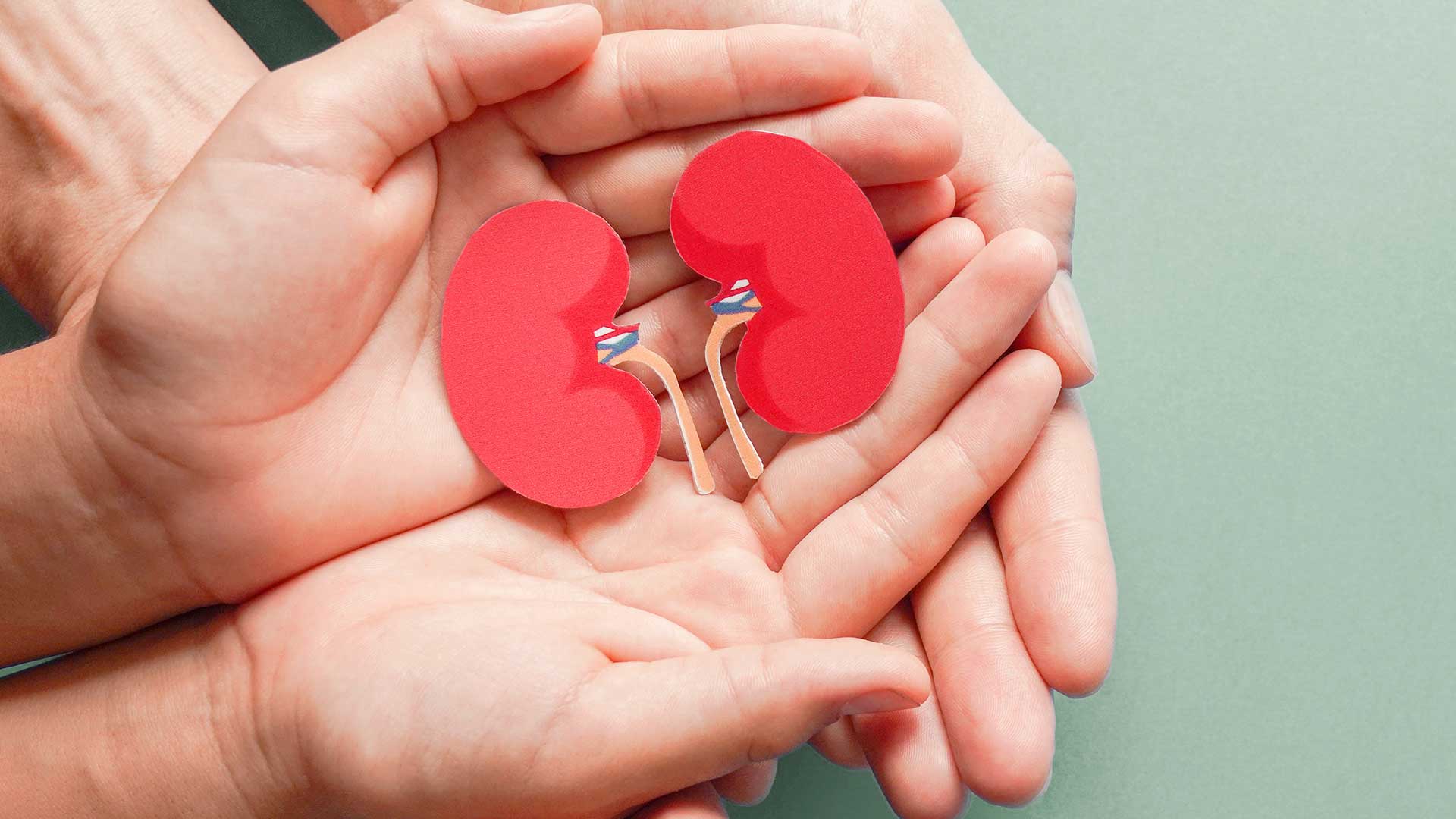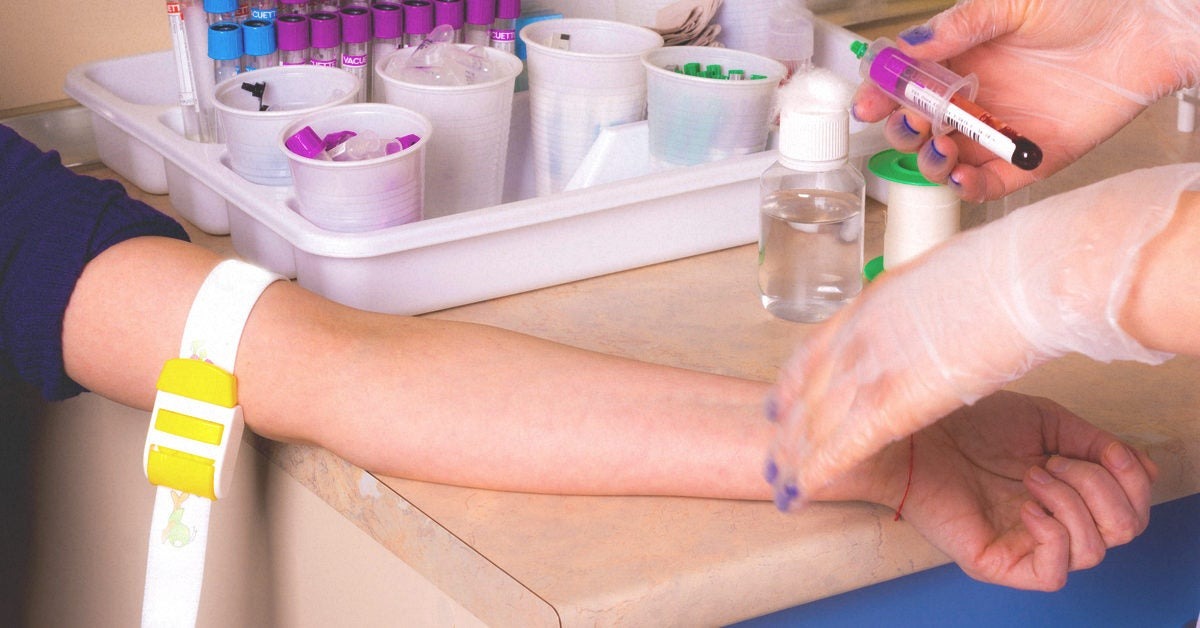

Featured
How To Improve Kidney Health
Published: September 7, 2023
Learn effective ways to improve your kidney health with our featured tips and strategies. Enhance your kidney function and overall well-being.
Introduction
Kidney health is a topic of utmost importance that often goes overlooked. Our kidneys play a crucial role in filtering waste and toxins from our blood, maintaining proper fluid balance, and regulating electrolyte levels in our bodies. Unfortunately, many people are unaware of how to maintain optimal kidney health, leading to a rise in kidney-related issues.
With kidney diseases and disorders on the rise, it is essential to educate ourselves and take proactive measures to support our kidney health. By understanding the factors that affect our kidneys and implementing lifestyle changes, we can significantly improve our overall kidney function.
In this article, we will explore the causes of kidney health issues and provide practical tips on how to improve kidney health through diet and nutrition, hydration, sodium reduction, blood pressure and cholesterol management, regular exercise, diabetes control, tobacco and alcohol cessation, stress management, and the importance of regular check-ups and medical care.
Whether you are looking to prevent kidney issues or you have already been diagnosed with a kidney condition, the information shared here will guide you towards better kidney health and overall well-being.
Understanding Kidney Health
The kidneys are two small, bean-shaped organs located on either side of the spine, just below the ribcage. They play a crucial role in maintaining our overall health by performing several essential functions.
Primarily, the kidneys filter waste products, excess fluid, and toxins from our blood, producing urine that is then excreted from the body. They also help regulate and maintain the balance of electrolytes, such as sodium, potassium, and calcium, in our bloodstream.
Another critical function of the kidneys is the production of hormones that play a role in regulating blood pressure, stimulating red blood cell production, and maintaining bone health.
When the kidneys are not functioning properly, waste products and toxins can accumulate in the body, leading to various health issues. Some of the common kidney-related conditions include:
- Chronic kidney disease (CKD): a long-term condition where the kidneys gradually lose their ability to function properly.
- Acute kidney injury (AKI): a sudden and severe decrease in kidney function caused by factors like dehydration, medication, or infection.
- Kidney stones: hard deposits formed in the kidneys that can cause severe pain and block the flow of urine.
- Urinary tract infections (UTIs): infections that occur in the urinary system, including the kidneys, bladder, and urethra.
It is essential to be aware of the factors that can contribute to kidney health issues. These factors include:
- Uncontrolled high blood pressure
- Diabetes
- Obesity
- Smoking
- Poor diet high in sodium and processed foods
- Dehydration
- Sedentary lifestyle
By understanding the importance of kidney health and the factors that can impact it, we can take proactive steps to improve and maintain optimal kidney function. In the following sections, we will explore various strategies and lifestyle changes that can significantly contribute to kidney health.
Causes of Kidney Health Issues
There are several factors that can contribute to kidney health issues. Understanding these causes can help us take preventive measures and make necessary lifestyle changes to protect and improve our kidney function.
One of the primary causes of kidney health issues is uncontrolled high blood pressure, also known as hypertension. High blood pressure places excessive strain on the blood vessels in the kidneys, leading to damage over time. Similarly, uncontrolled diabetes can also damage the kidneys by affecting the small blood vessels and reducing their ability to function properly.
Another common cause of kidney problems is obesity. Excess weight puts a strain on the kidneys and can lead to various complications, including an increased risk of developing chronic kidney disease.
Smoking is another significant risk factor for kidney health issues. Smoking damages blood vessels, reduces blood flow to the kidneys, and can worsen existing kidney conditions. Quitting smoking can significantly improve kidney health and reduce the risk of further damage.
A poor diet high in sodium and processed foods can also contribute to kidney problems. Excessive sodium consumption increases fluid retention and blood pressure, putting a strain on the kidneys. Additionally, high intake of processed foods containing artificial additives and preservatives can negatively impact kidney function.
Dehydration is another common cause of kidney health issues. When the body is not adequately hydrated, the kidneys struggle to filter waste and toxins effectively. It is important to drink enough water and stay properly hydrated throughout the day to support optimal kidney function.
A sedentary lifestyle with limited physical activity can also lead to kidney health issues. Regular exercise improves blood circulation, helps maintain healthy blood pressure levels, and supports overall kidney function.
By understanding the causes of kidney health issues and addressing these factors, we can take proactive steps towards maintaining and improving our kidney health. In the following sections, we will explore various strategies and lifestyle changes that can positively impact kidney health.
Diet and Nutrition for Healthy Kidneys
Diet plays a crucial role in supporting kidney health. By following a balanced and nutritious diet, we can help prevent and manage kidney issues. The following dietary recommendations can promote healthy kidneys:
1. Limit sodium intake: Consuming excessive amounts of sodium can lead to water retention and elevated blood pressure, putting a strain on the kidneys. It is advisable to reduce the consumption of processed foods, canned soups, and fast food, which are often high in sodium. Instead, opt for fresh fruits, vegetables, lean proteins, and whole grains.
2. Manage protein intake: While protein is an essential nutrient, consuming excessive amounts can put stress on the kidneys, especially for those with existing kidney issues. It is recommended to consume moderate amounts of high-quality protein sources like lean meats, poultry, fish, eggs, and plant-based proteins such as legumes and tofu.
3. Control phosphorus and potassium levels: Individuals with kidney disease may need to monitor their phosphorus and potassium intake. High levels of these minerals can disrupt the balance in the body and lead to complications. Restricting the consumption of foods rich in these minerals, such as processed foods, carbonated beverages, and certain fruits and vegetables, may be necessary.
4. Stay hydrated: Drinking an adequate amount of water is essential for kidney health. It helps in maintaining proper kidney function by ensuring optimal blood flow and the effective elimination of waste products. It is recommended to drink at least 8 cups of water per day, but individual hydration needs may vary based on factors like climate and physical activity level.
5. Choose healthy fats: Opt for unsaturated fats like olive oil, avocados, and nuts. These fats are beneficial for heart health and can help reduce inflammation. Avoid or minimize the consumption of saturated and trans fats found in fried foods, processed snacks, and high-fat dairy products, as they can contribute to heart and kidney issues.
6. Monitor fluid intake: In cases of kidney disease or specific conditions like kidney stones, it may be necessary to monitor fluid intake. Your healthcare provider can provide guidance on the appropriate amount of fluid to consume based on your individual needs.
Remember, it is important to consult with a healthcare professional or registered dietitian before making significant dietary changes, especially if you have underlying kidney conditions. They can provide personalized recommendations based on your specific needs and health status.
By following these dietary guidelines, we can support our kidney health and reduce the risk of kidney-related complications. Combine a healthy diet with regular physical activity and other lifestyle changes for optimal kidney health.
Hydration and its Impact on Kidney Health
Proper hydration is crucial for maintaining optimal kidney health. Our kidneys play a vital role in filtering waste products and toxins from the blood, and they rely on an adequate amount of fluid intake to perform this function efficiently. Dehydration can have a significant impact on kidney health and overall well-being.
When we are dehydrated, the blood flow to the kidneys decreases, making it harder for them to filter waste and concentrate urine. As a result, waste products and toxins can build up in the kidneys, leading to various complications, such as kidney stones, urinary tract infections, and kidney damage.
Staying properly hydrated helps to ensure that the kidneys can effectively flush out waste products and maintain the proper balance of electrolytes in the body. It also helps to prevent the formation of kidney stones by diluting the concentration of minerals and preventing the accumulation of crystal-forming substances.
So, how much water should we be drinking to support kidney health? The general recommendation is to drink at least 8 cups (64 ounces) of water per day. However, individual hydration needs may vary based on factors such as climate, physical activity level, and health conditions.
In addition to water, fluids from other sources like herbal teas, unsweetened fruit juices, and certain fruits and vegetables also contribute to our overall hydration. However, it is important to limit the consumption of sugary drinks and caffeinated beverages, as excessive intake can have detrimental effects on kidney health.
It is also worth noting that certain medical conditions, such as kidney disease, may require individuals to monitor their fluid intake more closely. In such cases, healthcare professionals may prescribe specific hydration guidelines tailored to the individual’s needs.
To ensure adequate hydration, it is helpful to establish some habits, such as carrying a refillable water bottle with you throughout the day, setting reminders to drink water regularly, and incorporating hydrating foods into your diet, such as watermelon, cucumber, and citrus fruits.
Keep in mind that thirst is not always a reliable indicator of hydration. By the time you feel thirsty, you may already be mildly dehydrated. Therefore, it is important to drink water regularly throughout the day, even if you do not feel thirsty.
Paying attention to your fluid intake and maintaining proper hydration is a simple yet effective way to support kidney health. By ensuring that your kidneys have enough fluid to perform their vital functions, you can promote overall kidney health and reduce the risk of kidney-related complications.
Reducing Sodium Intake for Improved Kidney Health
Sodium, a mineral commonly found in salt and processed foods, plays a crucial role in our diets. However, excessive sodium intake can have a detrimental effect on kidney health. Reducing sodium intake is an important dietary step to promote optimal kidney function and prevent kidney-related complications.
High sodium intake can lead to water retention and increased blood pressure, both of which put a strain on the kidneys. The extra fluid places additional stress on the blood vessels in the kidneys, potentially leading to kidney damage over time. It can also contribute to the development of conditions like kidney stones and urinary tract infections.
To reduce sodium intake and support kidney health, consider the following tips:
1. Read food labels: Pay attention to the sodium content listed on food labels. Choose products with lower sodium levels or opt for low-sodium alternatives whenever possible. Aim for a daily sodium intake of no more than 2,300 milligrams (mg), or even less if you have existing kidney issues.
2. Limit processed foods: Processed and packaged foods, such as canned soups, frozen meals, and snacks, are often high in sodium. Incorporate more fresh fruits, vegetables, and whole foods into your diet to reduce your reliance on processed foods.
3. Cook at home: By cooking meals from scratch, you have control over the ingredients and can limit the amount of added salt. Experiment with herbs, spices, and other flavorings to enhance the taste of your dishes naturally.
4. Be aware of hidden sodium sources: Some foods may contain hidden sources of sodium, such as condiments, sauces, and dressings. Check the labels and opt for low-sodium versions or make your own using fresh ingredients.
5. Rinse canned foods: If using canned foods, such as beans or vegetables, rinse them thoroughly to remove excess sodium from the canning liquid.
6. Limit table salt usage: Be mindful of the amount of salt you add to your meals at the table. Experiment with using less salt or replace it with herbs, spices, and other seasonings to enhance the flavor.
7. Stay hydrated: Proper hydration can help flush out sodium and prevent water retention. Aim to drink enough water throughout the day, as recommended by your healthcare provider.
Reducing sodium intake is a vital step in promoting kidney health. By being mindful of your sodium consumption, choosing low-sodium alternatives, and incorporating fresh, whole foods into your diet, you can support your kidneys and reduce the risk of kidney-related complications.
Managing Blood Pressure and Cholesterol Levels
High blood pressure and elevated cholesterol levels are significant risk factors for kidney disease and other cardiovascular conditions. Taking steps to manage and control these factors is essential for maintaining optimal kidney health.
1. Blood Pressure Management:
High blood pressure, also known as hypertension, puts a strain on the blood vessels in the kidneys and can lead to kidney damage over time. To manage blood pressure:
- Monitor blood pressure regularly and work with your healthcare provider to establish target blood pressure goals.
- Follow a balanced diet rich in fruits, vegetables, whole grains, lean proteins, and low-fat dairy products. Avoid or limit high-sodium foods and processed snacks. The Dietary Approaches to Stop Hypertension (DASH) diet is often recommended.
- Reduce stress through relaxation techniques, regular exercise, and activities you enjoy.
- Avoid or limit alcohol consumption as excessive drinking can raise blood pressure.
- If prescribed, take blood pressure medications as directed by your healthcare provider.
2. Cholesterol Management:
Elevated cholesterol levels, particularly high levels of LDL (bad) cholesterol, can contribute to the development of kidney disease and cardiovascular complications. To manage cholesterol levels:
- Follow a heart-healthy diet that focuses on consuming healthy fats such as monounsaturated and polyunsaturated fats found in foods like olive oil, nuts, and fatty fish.
- Avoid or limit foods high in saturated and trans fats, such as fried foods, full-fat dairy products, and commercially baked goods.
- Incorporate plenty of fiber-rich foods, such as whole grains, fruits, and vegetables, which can help lower LDL cholesterol levels.
- Aim for regular physical activity, such as brisk walking or cycling, to help increase HDL (good) cholesterol levels and improve overall cardiovascular health.
- If prescribed, take cholesterol-lowering medications as directed by your healthcare provider.
By managing blood pressure and cholesterol levels, individuals can significantly reduce the risk of kidney disease and other cardiovascular complications. It is important to work closely with a healthcare provider to establish appropriate target goals and develop a personalized approach to managing these factors.
Remember, lifestyle modifications, including a healthy diet, regular exercise, stress reduction, and adherence to prescribed medications, are key components in managing blood pressure and cholesterol levels for improved kidney health and overall well-being.
Regular Exercise and its Benefits for Kidneys
Regular exercise is not only essential for overall health but also has numerous benefits specifically for kidney health. Engaging in physical activity on a regular basis can help protect and improve kidney function in several ways:
1. Improved Blood Pressure Control:
Regular exercise can help lower and control blood pressure, a significant risk factor for kidney disease. Physical activity helps strengthen the heart muscle, improve blood circulation, and reduce the overall strain on blood vessels, including those in the kidneys. This can lead to improved kidney function and lower the risk of kidney-related complications.
2. Enhanced Cardiovascular Health:
Exercise has a positive impact on cardiovascular health, which in turn benefits the kidneys. Regular physical activity helps lower cholesterol levels, reduce the risk of plaque formation in blood vessels, and improve overall cardiovascular function. This can help maintain proper blood flow to the kidneys, ensuring optimal kidney function and reducing the risk of kidney damage.
3. Weight Management and Blood Sugar Control:
Exercise plays a crucial role in weight management and blood sugar control, both of which are important for kidney health. Maintaining a healthy weight reduces the risk of developing kidney disease, while regulating blood sugar levels is essential for individuals with diabetes to prevent kidney complications. Regular physical activity helps burn calories, promote weight loss, improve insulin sensitivity, and better control blood sugar levels.
4. Enhanced Immune Function:
Exercise has been shown to boost immune function, which helps protect against infections and reduce the risk of kidney-related complications. By enhancing the immune system, regular exercise can help the kidneys defend against potential harm from pathogens and minimize the likelihood of kidney infections and inflammation.
5. Stress Reduction:
Engaging in regular physical activity can help reduce stress levels, which can have a positive impact on kidney health. Chronic stress is associated with higher blood pressure and increased risk of kidney disease. Exercise acts as a powerful stress-reducing tool, promoting mental well-being and contributing to overall kidney health.
It is important to note that the type and intensity of exercise should be tailored to an individual’s fitness level and health condition. It is generally recommended to engage in a combination of aerobic exercises (such as walking, cycling, or swimming) and strength training exercises (using weights or resistance bands) for optimal kidney health benefits.
Always consult with a healthcare professional before starting a new exercise regimen, especially if you have existing kidney issues or other chronic conditions. They can provide guidance on the most suitable exercise program based on your individual needs and limitations.
By incorporating regular exercise into your routine, you can improve blood pressure control, enhance cardiovascular health, manage weight and blood sugar levels, boost immune function, and reduce stress, all of which contribute to better kidney health and overall well-being.
Managing Diabetes for Kidney Health
Diabetes is a leading cause of kidney disease, making it vital for individuals with diabetes to take proactive steps in managing their condition to protect their kidney health. Proper diabetes management can significantly reduce the risk of kidney complications. Here are some key strategies for managing diabetes for optimal kidney health:
1. Maintain Blood Sugar Levels:
Consistently monitoring and controlling blood sugar levels is crucial for individuals with diabetes to prevent kidney damage. Regularly check blood sugar levels as advised by your healthcare provider and take appropriate measures to keep them within the target range. This may involve medication, insulin therapy, and lifestyle modifications such as a well-balanced diet and regular physical activity.
2. Follow a Healthy Diet:
Aim for a well-balanced diet that includes a variety of fruits, vegetables, whole grains, lean proteins, and healthy fats. Limit the consumption of sugary beverages, processed foods, and foods high in saturated fats and sodium. Working with a registered dietitian specializing in diabetes nutrition can provide personalized guidance on managing diabetes while promoting kidney health.
3. Control Blood Pressure and Cholesterol:
Keep blood pressure and cholesterol levels within the target range. High blood pressure and elevated cholesterol levels can worsen kidney damage in individuals with diabetes. Work closely with your healthcare provider to manage these factors through lifestyle modifications, medication if necessary, and regular monitoring.
4. Stay Active:
Engaging in regular physical activity helps manage blood sugar levels, reduce insulin resistance, and maintain a healthy weight. Aim for at least 150 minutes of moderate-intensity aerobic exercise per week, along with strength training exercises. However, it is important to consult with your healthcare provider before starting any exercise regimen, especially if you have any complications or limitations due to diabetes.
5. Quit Smoking:
Smoking further increases the risk of kidney damage in individuals with diabetes. Quitting smoking not only benefits kidney health but also overall cardiovascular health. Seek support from your healthcare provider or join smoking cessation programs to successfully quit smoking.
6. Regular Monitoring and Healthcare Visits:
Regularly monitor your kidney function through urine tests and blood tests that measure creatinine and estimated glomerular filtration rate (eGFR). These tests help detect any early signs of kidney damage and enable timely intervention. Additionally, attend regular healthcare visits to discuss your diabetes management, medications, and any concerns related to kidney health.
Managing diabetes effectively plays a significant role in preserving kidney health. By maintaining blood sugar levels, following a healthy diet, controlling blood pressure and cholesterol, staying physically active, quitting smoking, and undergoing regular monitoring, individuals with diabetes can reduce the risk of kidney complications and improve overall well-being.
Avoiding Tobacco and Alcohol for Kidney Health
Tobacco and alcohol use can have a detrimental impact on kidney health. Avoiding or minimizing the use of tobacco and alcohol is crucial for maintaining optimal kidney function and preventing kidney-related complications. Here’s why:
1. Tobacco Use and Kidney Health:
Smoking increases the risk of developing kidney disease and accelerates the progression of existing kidney damage. Smoking harms the blood vessels, reduces blood flow to the kidneys, and increases inflammation, all of which can lead to kidney dysfunction. Quitting smoking is essential to protect kidney health and reduce the risk of kidney-related issues.
2. Alcohol Consumption and Kidney Health:
Excessive alcohol consumption can have a direct toxic effect on the kidneys. It can lead to alcoholic kidney disease, which is characterized by compromised kidney function, inflammation, and scarring. Alcohol also dehydrates the body and interferes with the normal regulation of electrolyte balance, putting additional stress on the kidneys. Limiting alcohol intake or avoiding it altogether is crucial for maintaining kidney health.
3. Interactions with Medications:
Tobacco and alcohol use can interfere with the effectiveness of certain medications, including those prescribed for kidney-related conditions. Smoking can affect the metabolism of certain drugs, making them less effective. Alcohol can also interact negatively with medications, including those used to control blood pressure and manage kidney disease. It is important to inform your healthcare provider about your tobacco and alcohol consumption to ensure optimal medication management.
4. Blood Pressure and Kidney Function:
Tobacco use and excessive alcohol consumption can both contribute to high blood pressure, which can have detrimental effects on kidney function. High blood pressure puts a strain on the blood vessels in the kidneys, leading to damage and impairing their ability to filter waste products effectively. By avoiding tobacco and limiting alcohol, you can help maintain healthy blood pressure levels and reduce the risk of kidney-related complications.
5. Reducing the Risk of Kidney Disease:
Avoiding tobacco and alcohol significantly reduces the risk of developing kidney disease. By implementing healthy lifestyle choices, such as not smoking and moderating alcohol consumption, individuals can protect their kidneys and preserve their overall kidney function.
If you are struggling with tobacco or alcohol addiction, it is essential to seek professional help and support. Quitting smoking and limiting alcohol intake can be challenging, but with the right resources and assistance, it is possible to overcome these habits and improve kidney health.
By avoiding tobacco use and minimizing alcohol consumption, individuals can protect their kidney health, reduce the risk of kidney disease and complications, and promote overall well-being.
Stress Management Techniques for Kidney Health
Chronic stress can have a significant impact on kidney health and overall well-being. Stress activates the body’s stress response system, leading to an increase in blood pressure, heart rate, and the release of stress hormones. Over time, this can negatively affect kidney function and contribute to the development of kidney-related complications. By incorporating stress management techniques into our daily lives, we can protect and improve our kidney health. Here are some effective strategies for managing stress:
1. Mindfulness and Meditation:
Practicing mindfulness and meditation techniques can help reduce stress levels and promote a sense of calm. Set aside time each day to engage in activities such as deep breathing exercises, guided meditation, or yoga. These practices can help alleviate stress, improve mental clarity, and enhance overall well-being.
2. Regular Physical Activity:
Engaging in regular physical activity not only benefits our physical health but also plays a vital role in stress management. Exercise releases endorphins, which are known as “feel-good” hormones that improve mood and reduce stress. Find activities you enjoy, such as walking, jogging, dancing, or cycling, and aim for at least 30 minutes of moderate-intensity exercise most days of the week.
3. Time Management and Prioritization:
Stress often arises from feeling overwhelmed by a myriad of responsibilities and tasks. Improve stress management by effectively managing your time and prioritizing tasks. Create to-do lists, set realistic goals, and break tasks into smaller, manageable steps. Delegate tasks when possible and learn to say no to additional commitments when necessary.
4. Social Support and Connection:
Reach out to friends, family, or support groups to share your feelings and experiences. Supportive relationships can provide emotional comfort, reduce feelings of stress, and instill a sense of belonging. Surrounding yourself with a supportive network can help you navigate challenging situations and manage stress more effectively.
5. Relaxation Techniques:
Learn and practice relaxation techniques to combat stress. Techniques such as progressive muscle relaxation, guided imagery, or aromatherapy can help induce a state of relaxation and calmness. Find what works best for you and incorporate these techniques into your daily routine.
6. Adequate Sleep:
Prioritize getting enough quality sleep each night. Lack of sleep can contribute to stress and affect overall well-being. Establish a regular sleep routine, create a comfortable sleep environment, and ensure you are allowing yourself enough time for restorative sleep each night.
7. Healthy Lifestyle Choices:
Eating a nutritious diet, limiting caffeine and alcohol consumption, and avoiding tobacco use are all important for managing stress and promoting overall well-being. These healthy lifestyle choices can support optimal kidney health and contribute to better stress management.
Remember, managing stress is a lifelong journey, and it is important to find strategies that work best for you. Incorporate stress management techniques into your daily routine, and seek professional help if needed. By effectively managing stress, you can protect your kidney health, reduce the risk of kidney-related complications, and enhance your overall quality of life.
Importance of Regular Check-ups and Medical Care
Regular check-ups and medical care are essential for maintaining and monitoring kidney health. These routine visits not only help detect potential kidney issues early but also allow for timely intervention and treatment. Here are key reasons why regular check-ups and medical care are crucial for kidney health:
1. Early Detection of Kidney Issues:
Regular check-ups, including blood and urine tests, can help identify any signs of kidney problems at an early stage. Conditions such as chronic kidney disease (CKD) often have few noticeable symptoms in the early stages. Through routine monitoring, healthcare professionals can detect changes in kidney function and identify potential risk factors, allowing for proactive management and intervention.
2. Monitoring Kidney Function:
Regular check-ups provide an opportunity to monitor kidney function over time. Blood tests (such as serum creatinine and estimated glomerular filtration rate) and urine tests (such as urinalysis) help assess kidney health and detect any abnormalities. Tracking changes in kidney function allows healthcare providers to customize treatment plans and make appropriate adjustments to medications and lifestyle recommendations.
3. Managing Chronic Conditions:
Regular check-ups are especially important for individuals with chronic conditions that can impact kidney health, such as diabetes and high blood pressure. These conditions require ongoing monitoring and management to prevent further kidney damage. Regular medical care allows healthcare providers to assess blood sugar levels, blood pressure control, and medication management to optimize overall kidney health and reduce the risk of complications.
4. Medication Review and Adjustment:
Regular check-ups provide an opportunity to review and adjust medications, particularly those prescribed for managing kidney-related conditions. Healthcare providers can assess the effectiveness of medications, evaluate potential side effects, and monitor kidney function in relation to specific medications. Regular medication reviews help ensure that the prescribed medications and dosages are appropriate and up to date.
5. Lifestyle Counseling and Support:
Regular medical care offers an opportunity for healthcare providers to provide personalized lifestyle counseling and support. They can offer guidance on dietary recommendations, physical activity guidelines, stress management techniques, and tobacco and alcohol cessation strategies. This personalized advice contributes to better kidney health outcomes and empowers individuals to make informed decisions regarding their lifestyle choices.
6. Prevention and Education:
Regular check-ups and medical care also provide an opportunity for healthcare providers to educate individuals about kidney health, prevention strategies, and early warning signs of kidney disease. By raising awareness and promoting preventive measures, healthcare professionals can empower individuals to take control of their kidney health and reduce their risk of developing kidney-related complications.
Remember, consistent and proactive medical care is vital for maintaining optimal kidney health. Do not hesitate to schedule regular check-ups and follow your healthcare provider’s guidance. By prioritizing regular check-ups and medical care, you are taking proactive steps towards preserving kidney health and overall well-being.
Conclusion
Maintaining kidney health is imperative for overall well-being and longevity. By understanding the factors that impact kidney health and implementing lifestyle changes, we can significantly improve our kidney function and reduce the risk of kidney-related complications.
Through proper diet and nutrition, including reducing sodium intake, managing blood pressure and cholesterol levels, and staying hydrated, we can support our kidneys’ optimal functioning. Regular exercise not only benefits our physical health but also plays a crucial role in promoting kidney health by improving blood pressure control, enhancing cardiovascular health, and managing diabetes.
Additionally, avoiding tobacco and alcohol is pivotal in protecting kidney health. Smoking and excessive alcohol consumption can contribute to kidney damage and worsen existing kidney conditions.
Stress management is another crucial aspect of kidney health. By incorporating techniques such as mindfulness, regular physical activity, time management, and social support, we can effectively manage stress and reduce its potential impact on our kidneys.
Regular check-ups and medical care are essential for early detection and management of kidney issues. These visits enable healthcare professionals to monitor kidney function, manage chronic conditions, adjust medications, and provide lifestyle counseling and support.
By prioritizing our kidney health through lifestyle modifications, regular monitoring, and medical care, we can protect our kidneys, reduce the risk of kidney-related complications, and enhance our overall quality of life.
Remember, each person’s journey to optimal kidney health may differ. It is important to consult with healthcare professionals and registered dietitians to receive personalized guidance based on your individual health needs. By taking a proactive approach and making informed decisions, we can support our kidneys and enjoy a healthier life.








